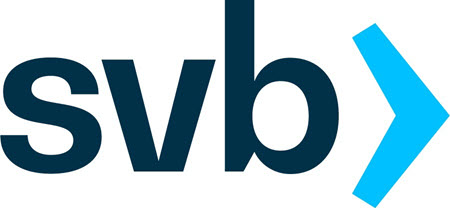
Founders of startup companies turned to Silicon Valley Bank (SVB) for loans, and tech firms used SVB accounts to manage their operations. Some founders and executives even used it for their personal banking and estate planning needs.
But when things got rocky for SVB this week, and venture capital firms told their portfolio companies to pull out their cash, it led to a run on the bank, and on Friday, SVB went into FDIC receivership.
Some online sellers were directly impacted on Friday when Etsy delayed disbursements. Etsy sent a letter to some sellers blaming “the recent developments regarding Silicon Valley Bank, who Etsy uses to facilitate disbursement to some sellers” – we published the letter on the AuctionBytes Blog.
In the short term, it’s a nightmare for anyone with deposits in the bank, since it’s closed until Monday. In the longer term, it means customers have a chance of recovering at least part of their funds beyond the $250,000 that are federally insured, since the FDIC stopped the run and will take action, potentially finding a buyer or selling SVB assets and distributing funds to depositors.
With a failure of this magnitude, there’s a ripple effect, and that’s what people will be worried about at least through next week.
Ryan Gilbert, Launchpad Capital founder, told CNBC in an interview that firms rely on third-party payroll companies, at least one of which he knows banks with SVB.
“If (companies) wired money into SVB to make payroll for next week, that money pretty much is locked up until the bank reopens on Monday,” Gilbert said. “And then we’re going to be in a situation that we have to ask, will the payroll company be able to get all those funds that have already been deposited into those accounts, out?”
The Daily Beast quoted attorney and restructuring expert James Baer who said, “What’s happening now, which is terrifying to people, is that companies are not able to make payroll because they’ve got their money at Silicon Valley Bank and their accounts are frozen,” Baer said. “Boards of directors can be held liable if they don’t make payroll, so they’re trying to borrow money to ride this out. The question is, when is the money [at SVB] going to be available? No one knows—and it may never be available.”
At least one firm had parked a great deal of their cash in SVB accounts. Roku notified investors through an SEC filing that 26% of its cash and cash equivalents balance was held at SVB ($487 million out of its $1.9 billion). Keep in mind it has $1.4 billion distributed across multiple large financial institutions, which would indicate its immediate operations are not in jeopardy. But the fact it doesn’t know to what extent it will be able to recover its cash on deposit at SVB meant Roku’s stock price took a hit.
Problems had mounted for SVB this week after Peter Thiel’s Founders Fund, among other VC firms, advised their portfolio companies to pull money from the bank. Interestingly, Thiel’s fund had “shot a bow” across the VC industry last week, according to Axios, by slashing its eighth VC fund in half.
The FDIC issued a press release on Friday in which it said in part:
“All insured depositors will have full access to their insured deposits no later than Monday morning, March 13, 2023. The FDIC will pay uninsured depositors an advance dividend within the next week. Uninsured depositors will receive a receivership certificate for the remaining amount of their uninsured funds. As the FDIC sells the assets of Silicon Valley Bank, future dividend payments may be made to uninsured depositors.”
It will be a long weekend for those waiting until Monday to learn more. In the meantime, let us know if you were impacted directly, or indirectly.
Update: See related story: “Online Sellers Operate in the Dark after SVB Collapse” (March 12, 2023).





They’re talking “receivership certificate”.
That’s not good.
All FDIC UNinsured accounts will come last.
That’s anything over $250,000 per account.
A few months to a few Years.
Welcome to the “economy”.